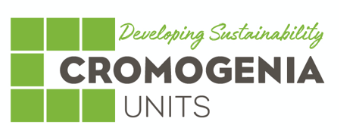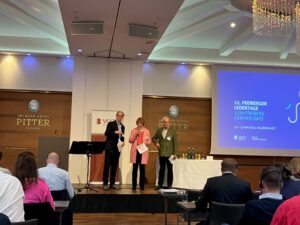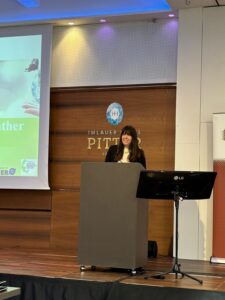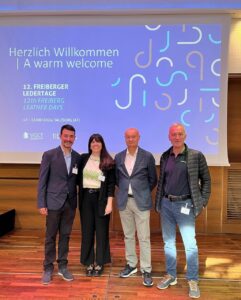Cromogenia Units presented its study on biosurfactants in the leather industry during the 12th edition of the Freiberg Leather Days. The event took place on June 12-13, 2024, in Salzburg, Austria, and featured participation from leading experts, researchers, and specialists in the leather sector.
Olga Ballús, Head of the Wet End Application Laboratory, presented the work titled “Probiotic-Based Solutions in Leather Processing.” The presentation provided a detailed insight into how the innovative role of biosurfactants can transform the leather industry, improving not only the quality of the final product but also significantly contributing to environmental protection.
More Sustainable Leather Industry
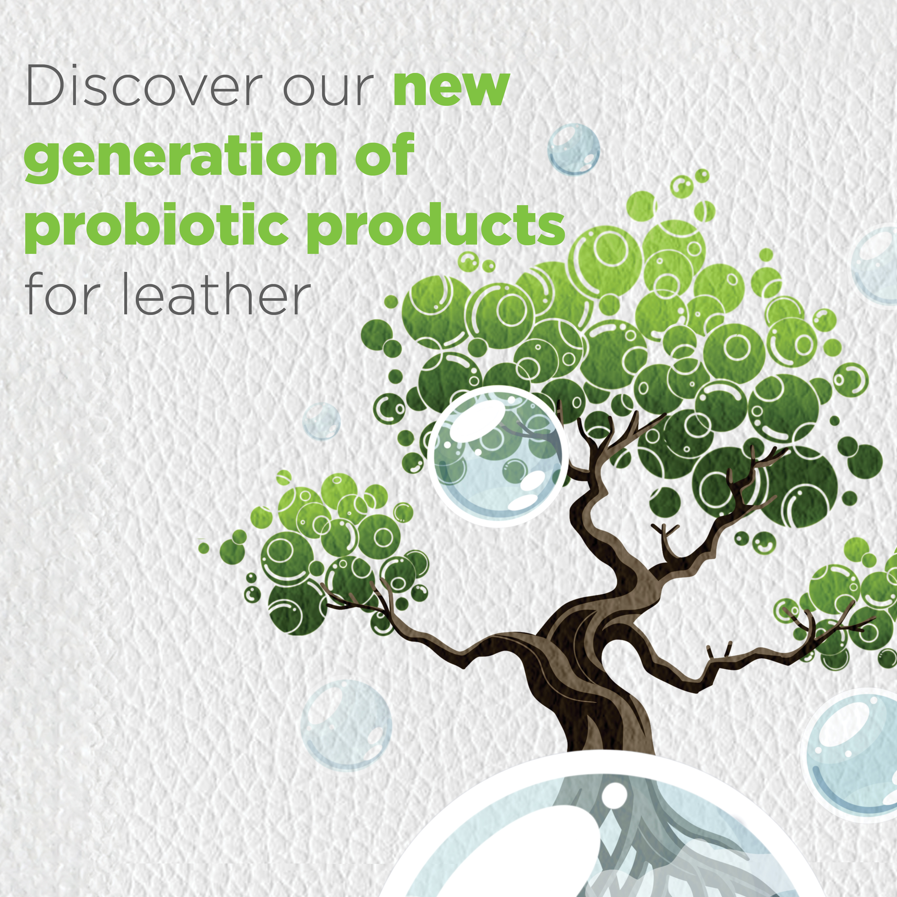
The leather industry is undergoing a significant transformation towards more sustainable and environmentally friendly practices. A notable innovation in this field is the integration of biosurfactants, which have shown promising results in revolutionizing more sustainable leather production, addressing environmental challenges simultaneously.
What are Biosurfactants in the Leather Industry?
Biosurfactants are compounds produced by living organisms. These products reduce the surface tension of liquids and can play key roles in the tanning process, acting as degreasers, wetting agents, or dispersants, potentially replacing conventional surfactants.
Applications of Biosurfactants in Leather Processing
Biosurfactants in the leather industry are applied at various stages of leather processing, each with specific benefits:
Degreasing Agents:
Biosurfactants can be used as degreasing agents, removing natural fats from hides more efficiently and with less environmental impact compared to traditional chemicals. They are extremely effective in both sheep hides with high natural fat content and cattle hides.
Wetting Agents:
Biosurfactants act as wetting agents, ensuring uniform water distribution. They can be used in the soaking stage of fresh or salted hides as well as for soaking wet blue. Additionally, they do not affect water-repellent properties, making them very promising products for such applications.
Dispersing Agents:
Biosurfactants can also function as dispersing agents, facilitating the dispersion of other products used in the tanning process. For instance, they have been observed to disperse lime effectively during the liming process.
Comparison of Biosurfactants with Standard Product
Research has shown that biosurfactant-based products exhibit behaviors similar to standard products used in the leather industry.https://www.cromogenia.com/en/product-category/leather/wet-end/sustainable-products-range/ However, the main advantage of biosurfactants lies in their reduced environmental impact, meaning more sustainable products. These products are also naturally derived, completely biodegradable, and highly stable, making them applicable at any stage of the process.
- Freiberg Leather Days Event
- Freiberg Leather Days Event
- Freiberg Leather Days Event
Life Cycle Analysis
The life cycle analysis of biosurfactant-based products reveals a significant reduction in environmental impacts compared to their standard counterparts. This analysis considers various factors, including the production, use, and final disposal of the products. The results indicate that biosurfactants not only reduce the carbon footprint of leather production but also improve air and water quality by decreasing the use of harmful chemicals.
This research contributes to advancing the understanding of biosurfactant applications in the leather industry, paving the way for a more environmentally conscious and high-quality production process. The adoption of biosurfactants in leather production not only achieves environmental benefits but also opens new opportunities for sustainable innovations in the sector.
What is the Freiberg Leather Days Event?
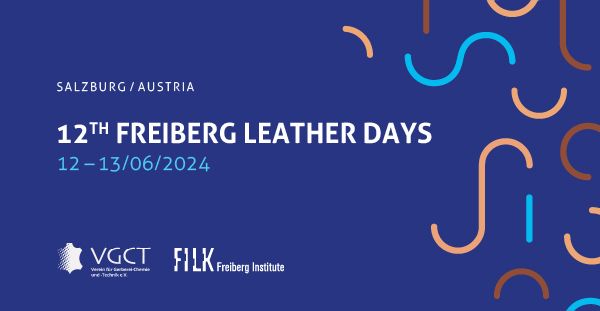
The Freiberg Leather Days is an annual event that brings together key players in the leather industry. Each edition offers a combination of technical presentations, discussions, and networking opportunities, focusing on the industry’s advances and challenges in leather and tanning. This event is essential for knowledge exchange among professional researchers and technicians, innovation and development with the latest research and developments, and networking among entities and professionals in the sector.
The event is organized by VGCT and FILK Freiberg, who work jointly with other co-organizers and industry associations to ensure a rich and relevant agenda for all attendees. The invitation from the Austrian association VÖLT to the 2024 edition underscores the event’s relevance and prestige in the European context.
